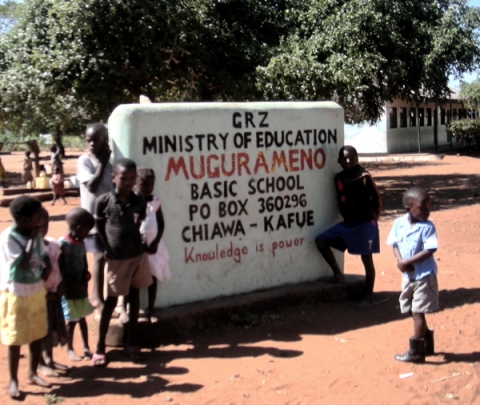
News of Michelle and Barack Obama's fist bump came to this village on the banks of the Lower Zambezi River, but the villagers stories of death and disaster for want of 20th century commodities are a harder sell.
Before the headmaster of the village school we came to started his story, he asked where we were from.
"America!" he repeated, a smile lighting his worried face, "Barack Obama!"
"Barack Obama!" he repeated later, walking across the village clearing, after he had told his story, and he turned to bump fists with another visitor.
Our news, including the historic future-first-lady and future-president fist bump had months ago made it to this village, 25 minutes by plane onto a dirt airstrip, but a rough bumpy day by car from Lusaka, the nation's capital.
The story of this village hasn't made the return trip to the paved streets of America, though.
It includes a school where nine teachers serve 450 students, where children begin their day before dawn running a gauntlet of elephants, which some have lost their lives too.
Many are orphans, their parents lost to AIDS, malaria, cholera, and one of the highest maternal mortality rates on earth.
Enough are living with HIV for the headmaster to have struggled to find a way for them to get their medicine consistently, instead of just when transport allows.
The obstacles strewing that path are bigger than elephants. He's trying to get donors to build a clinic in the village. A clinic will need a doctor. The doctor, if one can be lured there, will need a place to live. The place to live, as well as the clinic, will need electricity.
Right now there isn't any in this village on the banks of a river that draws tourists from around the world, in the 21rst century, more than a half a decade after the Global Fund and PEPFAR recognized that AIDS treatment should be a widespread as the virus that calls occasions its need.
The swine flu, which has felled an estimated 1,600 people, has made the headlines around the world and even in Africa where preventable diseases kill multiples of that number daily. But the proof of preparedness top deal with any plague depends on the state of villages like this one, where news makes it in, but doesn't make it out.